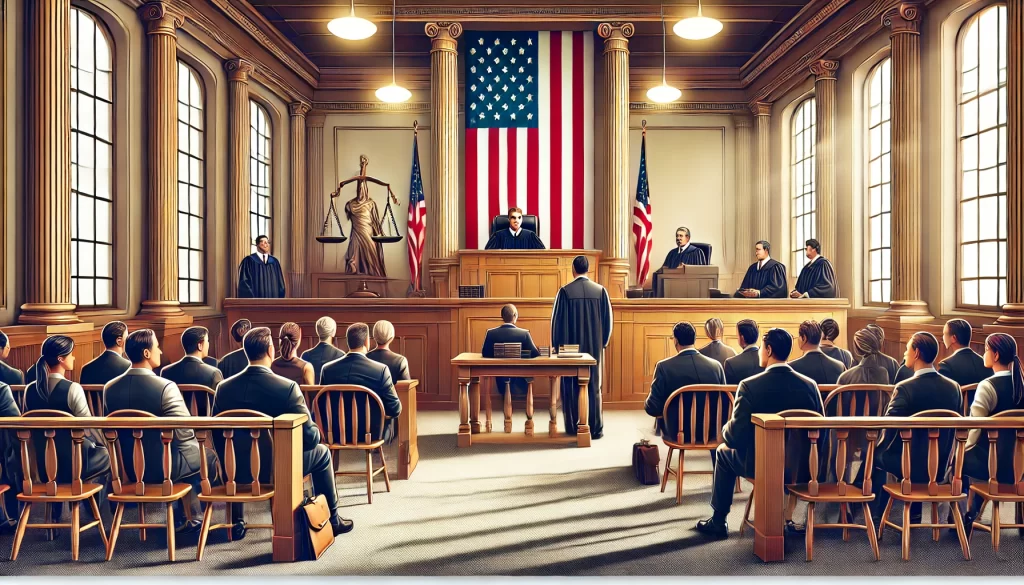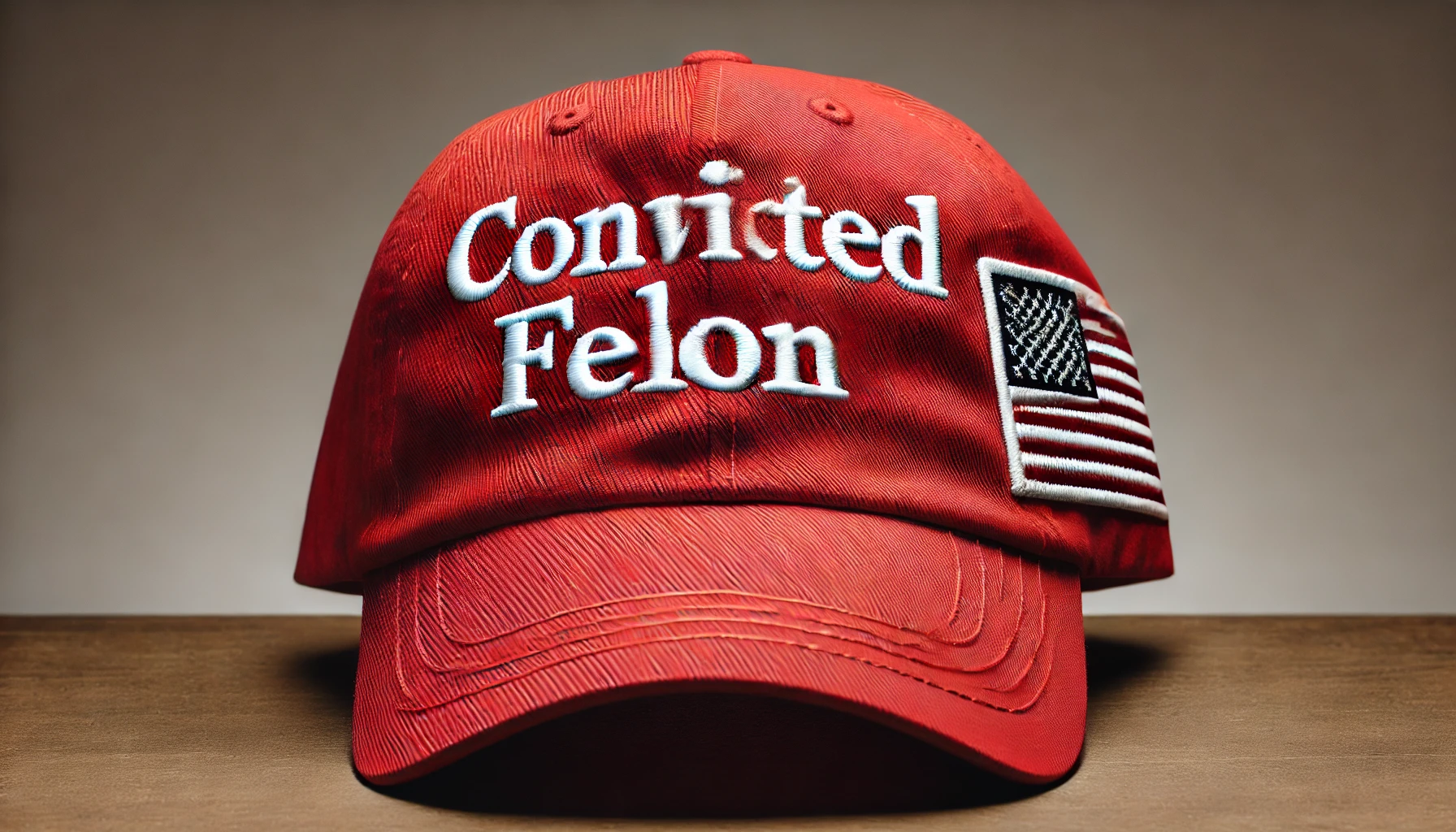On January 10, 2025, President-elect Donald Trump made history by becoming the first U.S. president to be a convicted felon while preparing to assume office. Trump was found guilty of 34 felony counts of falsifying business records in May 2024. These charges stemmed from a hush money payment to Stormy Daniels, an adult film actress, who claimed she had an affair with Trump in 2006. Trump denied the affair, and the payment was made before the 2016 presidential election to avoid public scandal.
What the Sentence Means
Judge Juan Merchan, who presided over the case, sentenced Trump to an unconditional discharge. This unusual sentence means Trump will not face prison time, fines, or probation. The judge explained that this decision allowed Trump to pursue appeals without other penalties. “It is incumbent upon this Court to set this matter down for the imposition of sentence prior to Jan. 20, 2025,” Merchan wrote, referring to Trump’s inauguration.
The sentence came after Merchan delayed the hearing until after the presidential election. Some argued that it was important to finalize the case to prevent distractions during Trump’s upcoming presidency. Prosecutors supported the jury’s verdict but acknowledged that proceeding with a traditional sentence could interfere with Trump’s role as president. Ultimately, Merchan decided that the unconditional discharge was the best solution.
Trump’s Legal Challenges
This conviction is just one of several legal challenges Trump faces. Prosecutors in Manhattan claimed that the payment to Daniels, made through Trump’s former lawyer Michael Cohen, was not an official presidential act. Trump argued that the case was politically motivated, calling it “an injustice of justice” during his sentencing remarks.
Additionally, the Justice Department dropped two other cases against Trump—one involving alleged attempts to overturn the 2020 election and another related to the mishandling of classified documents after his presidency. Trump is also contesting a separate case in Georgia that accuses him of trying to change the outcome of the 2020 election.
A Dramatic Trial, A Quiet Sentence
Trump’s seven-week trial was filled with dramatic moments, including testimony from Cohen and heated cross-examinations. In contrast, the sentencing hearing was short and straightforward. Trump appeared via video, sitting in front of two American flags. During the hearing, he criticized the legal system and accused the prosecution of being politically biased. He also referred to Cohen as “a totally discredited person” and expressed frustration over the case.

Prosecutor Joshua Steinglass emphasized that Trump’s refusal to admit guilt showed his disregard for the law. “The defendant sees himself as above the law and won’t accept responsibility for his actions,” Steinglass said. Despite this, he recommended the unconditional discharge, acknowledging Trump’s status as president-elect.
Trump’s Defiance and Reaction
Even after the sentencing, Trump remained defiant. Shortly after the hearing, he posted on Truth Social, declaring that the sentence proved the case was weak. “This whole Scam fully deserves to be DISMISSED,” he wrote. He also accused the Manhattan District Attorney’s office of wasting years and millions of dollars on what he called a baseless case.
Trump’s lawyer, Todd Blanche, argued that the case was legally questionable and should never have been brought to trial. He highlighted Trump’s election victory as evidence that most Americans supported the president-elect, despite the conviction.
What’s Next for Trump?
Though Trump has been sentenced, his legal team plans to appeal the conviction. Legal experts believe the appeal process could take years and will likely continue throughout Trump’s second term. Meanwhile, the conviction carries certain consequences. Unless overturned, it will prevent Trump from voting, owning firearms, or serving on a jury in New York.
Judge Merchan, who faced personal criticism and threats during the trial, concluded the hearing by emphasizing that the sentence was lawful and impartial. As he left the bench, Merchan wished Trump “godspeed,” signaling the end of a historic case.
In just ten days, Trump will return to the White House, marking an unprecedented moment in U.S. history. While some see this as a victory for Trump, others worry about the long-term impact on the nation’s legal and political systems.
This article is based on the following articles:
https://www.politico.com/live-updates/2025/01/10/congress/donald-trump-reacts-to-sentencing-00197513

Background Information
Who is Donald Trump?
Donald Trump is a businessman and television personality who became the 45th President of the United States, serving from January 2017 to January 2021. He first entered politics in 2015 when he announced his candidacy for the presidency as a Republican. Known for his unconventional style and controversial policies, Trump gained both strong supporters and vocal critics during his time in office. After losing the 2020 election to Joe Biden, Trump announced he would run again in 2024 and won the election, making him the only U.S. president in modern history to serve two non-consecutive terms.
The Stormy Daniels Case
This case revolves around a payment made to Stormy Daniels, whose real name is Stephanie Clifford, an adult film actress. Daniels claimed that she had a brief relationship with Trump in 2006, which he denied. In 2016, before the presidential election, Trump’s lawyer Michael Cohen paid Daniels $130,000 to keep her quiet about her claims. This kind of payment is called a hush money payment because it is meant to stop someone from sharing potentially damaging information.
While paying someone to remain silent isn’t illegal, the problem arose because the payment was allegedly recorded improperly in Trump’s business records. Prosecutors argued that Trump committed a crime by falsifying these records to hide what the payment was really for. This led to his felony conviction on 34 counts of falsifying business records.
Felony vs. Misdemeanor
In the United States, crimes are divided into two main categories: misdemeanors and felonies.
- Misdemeanors are less serious crimes, such as minor theft or trespassing. People convicted of misdemeanors may face small fines or short jail sentences.
- Felonies, on the other hand, are much more serious crimes. They include offenses like robbery, murder, and, in this case, falsifying business records. Being convicted of a felony can have lasting consequences, such as losing the right to vote or own a firearm.
Although Trump was convicted of a felony, his sentence of an unconditional discharge meant that he did not have to serve time in jail or pay a fine.
The Role of a Judge and Prosecutor
In a criminal case like Trump’s, two key figures play important roles:
- The Judge: The judge oversees the court proceedings, ensuring that both sides follow the law. In this case, Judge Juan Merchan presided over the trial and sentencing. He made the final decision on Trump’s sentence and explained his reasoning in a written opinion.
- The Prosecutor: The prosecutor represents the government and works to prove that the defendant (in this case, Trump) committed a crime. Joshua Steinglass was one of the prosecutors in Trump’s trial. His job was to present evidence and arguments to convince the jury that Trump was guilty.
Unconditional Discharge: What Does It Mean?
An unconditional discharge is a rare type of sentence in which a person is found guilty but does not receive any punishment, such as jail time or fines. The judge in Trump’s case chose this sentence because he wanted to allow Trump to appeal the case without additional penalties. This type of sentence also meant that Trump would not be immediately burdened with legal restrictions while serving as president.
The U.S. Presidential Election Process
To understand the significance of Trump’s conviction and his upcoming presidency, it’s helpful to know how the U.S. presidential election works.
- Primary Elections and Caucuses: Political parties in each state hold primary elections or caucuses to choose their candidate for president.
- General Election: After the candidates are chosen, the general election takes place in November. All eligible American citizens can vote to choose the next president.
- Electoral College: Instead of directly electing the president, voters actually choose electors in their state. These electors then vote for the president. A candidate needs at least 270 electoral votes to win.
- Inauguration: The president-elect is sworn into office on January 20 in a ceremony called the inauguration. Trump’s inauguration will take place on January 20, 2025.
Why This Case is Historically Important
Trump’s conviction is significant because no other U.S. president has ever been a convicted felon while serving in office. While other presidents have faced legal trouble—such as Richard Nixon during the Watergate scandal—Trump is the first to be convicted of a crime before taking office. His legal battles are also unusual because they continue while he prepares to serve as president.
Appealing a Conviction
When someone is found guilty in court, they can try to get the decision overturned by filing an appeal. An appeal asks a higher court to review the case and decide whether any mistakes were made during the trial. If the appellate court agrees that there were mistakes, it can reverse the conviction or order a new trial.
Trump’s lawyers plan to appeal his conviction, which means that the legal fight over his guilt or innocence could continue for a long time. Even if Trump is serving as president, the appeal process will go on.
Other Legal Challenges Trump Faces
In addition to the New York case, Trump faces legal trouble in Georgia and other places. In Georgia, he was accused of trying to interfere with the results of the 2020 election. There are also ongoing investigations into whether he mishandled classified government documents after leaving office in 2021.
Public Opinion and Controversy
Trump has always been a controversial figure in American politics. His supporters believe he is a strong leader who fights for what he believes in, while his critics accuse him of breaking rules and ignoring laws. His legal battles have further divided opinions. Some people think the cases against him are politically motivated, while others believe they show that no one, not even a president, is above the law.
Key Legal Terms
- Conviction: Being found guilty of a crime.
- Sentencing: The process of deciding the punishment for a crime after a person is convicted.
- Appeal: Asking a higher court to review and change the decision of a lower court.
- Felony: A serious crime with heavy penalties, such as imprisonment or losing certain rights.
- Unconditional Discharge: A sentence where the person found guilty does not receive any punishment.

Debate/Essay Questions
- Should a convicted felon be allowed to serve as President of the United States?
- Was Judge Merchan’s decision to give Donald Trump an unconditional discharge appropriate?
- Does the existence of hush money payments affect the integrity of elections?
- Does Trump’s conviction signal that no one is above the law, or does it appear politically motivated?
Please subscribe to Insight Fortnight, our biweekly newsletter!
